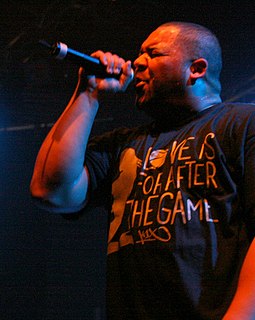A Quote by Bakari Kitwana
Unfortunately there is a standard set for it that precedes hip-hop. It would be great if corporate America didn't do this, but there is a huge market for sex and violence and anti-Black representations in America and the world that doesn't begin or end with hip-hop.
Related Quotes
Somewhere down the line, the evil ones stole the legacy of hip hop and flipped it to a corporate type of hip hop. They decided to tell everybody 'Well, this is what hip hop is,' instead of coming back to the pioneers and getting the true definition of what hip hop is and what it was and what we been pushing for all these years.
After many years of hip-hop as a nation we should have the sophistication to accept that their are distinctions between the corporate manifestation of hip-hop, sold as a commodity and package with sensational race, sex and violent imagery, and the hip-hop culture that kids are living everyday at a local level, which often doesn't dabble in that terrain.
Hip-hop is contributing to American society's misogyny and racism, hyper-sexuality anti-Black representations. Hip-Hop isn't setting the standard for misogyny. No one reduces the presidency to misogyny, although we've had misogynistic presidents. No one reduces our government to being solely homophobic, although we have a government with a don't ask, don't tell policy for gays and lesbians in the military.
Socially, hip-hop has done more for racial camaraderie in this country than any one thing. 'Cause guys like me, my kids - everyone under 45 either grew up loving hip-hop or hating hip-hop, but everyone under 45 grew up very aware of hip-hop. So when you're a white kid and you're listening to this music and you're being exposed to it every day on MTV, black people become less frightening. This is just a reality. What hip-hop has done bringing people together is enormous.




























